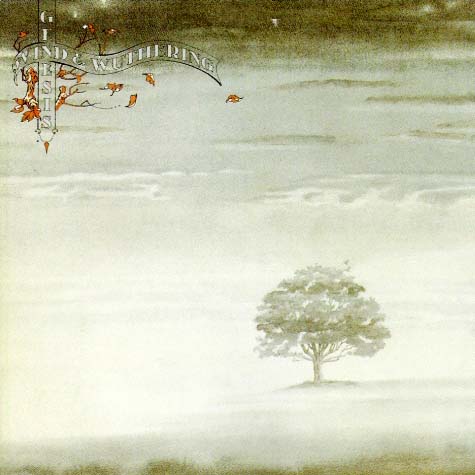
Wind and Wuthering (1976)

1.Eleventh Earl of Mar
2.One For the Vine
3.Your Own Special Way
4.Wot Gorilla?
5.All in a Mouses Night
6.Blood on the Rooftops
7. a)Unquiet Slumbers for the Sleepers
b)In That Quiet Earth
8.Afterglow
Released scarcely ten months after A Trick of the Tail, Wind & Wuthering marked both a continuation and a conclusion. It would be the final studio outing for the four-piece configuration of Collins, Banks, Rutherford, and Hackett—a lineup that, by most standards, had proven itself more than capable in the post-Gabriel era. And yet, for all its craft and poise, this album has long existed in the shadow of its predecessor, lacking, perhaps, that elusive sense of discovery which made A Trick of the Tail such a quietly thrilling affair.
From the outset, there is a palpable shift in tone. Genesis, though still rooted in the complex arrangements and expansive gestures of progressive rock, appear to be inching—delicately—towards something more accessible. Not quite pop, and certainly not commercial in the conventional sense, but rather a softening of edges, a turn inward. The baroque theatrics had been muted, replaced by a more reflective, pastoral sensibility. The result is a record that is both richly atmospheric and, at times, curiously reserved.
The opening suite—Eleventh Earl of Mar followed by One for the Vine—presents something of a litmus test. Both tracks are meticulously constructed, harmonically dense, and unapologetically ambitious. And yet, for all their intricacy, they risk tedium. One for the Vine, in particular, suffers from an excess of weight. It unfolds ponderously, its melodic peaks submerged beneath layers of mid-tempo solemnity. Admirers laud its depth; detractors, not unfairly, question its pacing.
Once past this opening brace, however, the album begins to reveal its finer moments. Chief among them is Blood on the Rooftops—a moody, understated gem that owes much to Steve Hackett’s delicate guitar figures and unhurried arrangement. It is melancholic without being maudlin, beautifully drawn and, for many, the emotional core of the album. That Hackett would depart the group shortly thereafter is perhaps foreshadowed in its introspective tone.
Your Own Special Way, written by Rutherford and released as a single, is Genesis’s first overt flirtation with the love song. That it stretches past the six-minute mark is a reminder of their prog lineage, but there’s a sincerity to it that’s quietly disarming. At the time, it may have seemed anomalous; in hindsight, it was the first indication of the more radio-conscious sensibility to come.
Elsewhere, Wot Gorilla? serves as an instrumental interlude that foregrounds Collins’s increasingly assured drumming. Paired with Banks’s wiry synth textures, it feels lean, modern, and faintly futuristic—an early signal of the rhythmic clarity that would define their later work. It remains something of an overlooked piece, a brief but telling sketch of what Genesis could be without narrative baggage.
Despite these high points, the album as a whole feels, at times, like the echo of A Trick of the Tail—a quieter, more domesticated sibling. The craftsmanship remains impeccable, the execution professional, but the spark is ever so slightly dimmed. One cannot quite escape the sense that, in seeking to refine their sound, the band may have inadvertently dulled its edges.
Still, Wind & Wuthering is no misstep. It contains moments of grace and invention, and if it lacks the unified charm of its immediate predecessor, it nonetheless stands as a worthy chapter in the band’s evolving story. It is, in every sense, the sound of transition—subtle, wistful, and delicately unresolved.
Go back to the main page
Go To Next Review